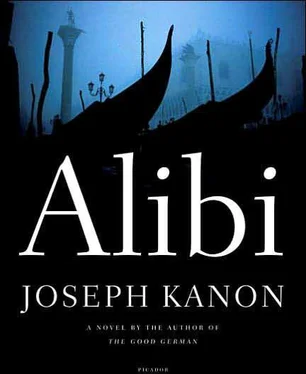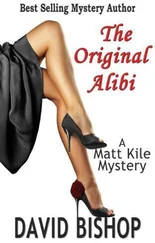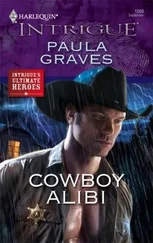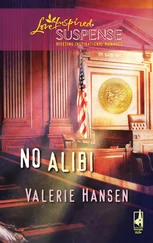Joseph Kanon - Alibi
Здесь есть возможность читать онлайн «Joseph Kanon - Alibi» весь текст электронной книги совершенно бесплатно (целиком полную версию без сокращений). В некоторых случаях можно слушать аудио, скачать через торрент в формате fb2 и присутствует краткое содержание. Жанр: Триллер, на английском языке. Описание произведения, (предисловие) а так же отзывы посетителей доступны на портале библиотеки ЛибКат.
- Название:Alibi
- Автор:
- Жанр:
- Год:неизвестен
- ISBN:нет данных
- Рейтинг книги:3 / 5. Голосов: 1
-
Избранное:Добавить в избранное
- Отзывы:
-
Ваша оценка:
- 60
- 1
- 2
- 3
- 4
- 5
Alibi: краткое содержание, описание и аннотация
Предлагаем к чтению аннотацию, описание, краткое содержание или предисловие (зависит от того, что написал сам автор книги «Alibi»). Если вы не нашли необходимую информацию о книге — напишите в комментариях, мы постараемся отыскать её.
Alibi — читать онлайн бесплатно полную книгу (весь текст) целиком
Ниже представлен текст книги, разбитый по страницам. Система сохранения места последней прочитанной страницы, позволяет с удобством читать онлайн бесплатно книгу «Alibi», без необходимости каждый раз заново искать на чём Вы остановились. Поставьте закладку, и сможете в любой момент перейти на страницу, на которой закончили чтение.
Интервал:
Закладка:
“Just like Swann, couche de bonne heure,” my mother would say, but idly, not really worried, for by this time Dr. Maglione had come back into her life, so she was spending evenings out, unaware that when she left me with a book I was already halfway up the stairs in my mind, curling up with the fog.
The result was that I was waking early, before first light. It wasn’t insomnia-I slept deeply, snug under a warm duvet-but some automatic awareness that the light was about to change, the way plants are said to lift their heads toward the dawn. My bedroom window faced across the channel to the Redentore, and I would look out into the darkness waiting for its lines to start forming, as if Palladio himself were sketching them in again, until finally everything had definition, still murky but real. Then I would put on my heavy wool army coat and leave the house without making a sound, quieter even than the shy marchesa, and begin my walk.
Venice is often said to be a dream, but at that hour, when there is no one out, no sounds but your own steps, it is really so, no longer metaphor-whatever separates the actual paving stones from the alleys in your mind dissolves. The morning mist and the gothic shapes from childhood stories have something to do with this, the rocking slap of boats on the water, tugging at their mooring poles, but mostly it’s the emptiness. The campos and largos are deserted, the buoy marker lights in the lagoon undisturbed by wakes, the noisy day, when the visitors fan out into the calles from the Piazzale Roma, still just a single echo. Things appear at that hour the way they do in sleep, gliding unconnected from one to the next, bolted garden door to shadowy church steps to shuttered shopwindow, no more substantial than fragments of mist.
The walk was always the same. First down along the Zattere, past the lonely vaporetto stations. Just before the Stazione Marittima I would turn into the calle leading to San Sebastiano, Veronese’s church, and a bar for stazione workers that was always open by the time I got there, the windows already moist with steam hissing from the coffee machines. The other customers, in blue workers’ coveralls bulked with sweaters underneath, would nod from their spots at the bar, taking in the army coat, then ignore me, turning back to their coffee and cigarettes, voices kept low, as if someone were still sleeping upstairs. Even at that hour a few were tossing back brandies. The coffee had been cut with something-chicory? acorns? — but was still strong enough to jolt me awake, and standing there with a first cigarette, suddenly alert to everything-the steamed windows, the whiff of scalded milk, isolated words of dialect-it seemed to me that I’d never been asleep at all.
Outside there were a few more people-a boy in a waiter’s uniform heading toward one of the hotels, an old woman in a fur coat coaxing a dog to pee, a priest with his hands in his sleeves, staying warm, all the insomniacs and early risers I’d never seen before I became one of them. I supposed that if I headed over to the Rialto I could see the fish stalls being set up and the boats unloading, the early-morning working world, but I preferred the empty dream city. From San Sebastiano it was a straight path, only slightly angled by bridges, to Campo San Barnaba. No produce market yet, just a man hurrying toward the traghetto station, perhaps still not home from the night before. Then right toward the Accademia, following the natural course of the streets the way water runs in canals, looping finally around the museum, then through the back alleys toward Salute, not a soul in sight again, past the great swirling church and out along the fondamenta to the tip. Here, huddled in my coat with my back against the old customs house, I sat for hours looking across the water to the postcard everyone knew-Ruskin’s waves of marble, the gilt of San Marco catching the first morning sun, the columned landing stage filling with boat traffic, all the beautiful buildings rising out of the water, out of consciousness, the city’s last dream.
I thought at first that my mother would tire of it, the way she tired of everything finally except the past, but Dr. Maglione was an unexpected wrinkle, a piece of future. After my father died there had been a period of melodramatic grief, followed, I assumed, by a series of friendships. But these had happened, if they had happened, offstage. I was away at school, then in the army, then overseas, so what I knew came from letters, and these had been full of other things-volunteer work, openings, her three-week job (unpaid) at the Art of This Century gallery and the inevitable fight with Peggy Guggenheim that followed. Then she had come back to Europe, not really looking for anyone, and suddenly there he was. Not slick or too young or in any way unpleasant-not unlike my father, in fact, gray hair thinning at the temples, quiet, almost reticent. And yet amused by her, the way my father had been, both of them perhaps drawn to a quicksilver quality neither possessed himself. In any case, he was here, making her look brighter, in love with Venice, not even aware the rooms were cold. So I put off going back to New York, unsettled, not sure where any of us was heading.
“He’s not a fortune hunter, you know,” Bertie said. “Besides, if you’re after money, why not young money? Much nicer. And you know I adore Grace, but she can be a handful. Anyway, he had doges in his family.”
“That doesn’t mean anything.”
“It does if you have them. And he’s a real doctor, you know, it’s not an honorific. My doctor, in fact, and I’m still here.”
“I thought it was drink.”
He picked up his glass. “Well, that too. The point is, he’s not a gigolo.”
“So you introduced them.”
“No, no. They’ve known each other for years. Since the old days. When we were all-well, younger than we are now. The parties, my god. I suppose that’s part of it. It reminds them. Anyway, you ought to be grateful. You don’t want her sitting home alone, do you? Imagine what that would be like. It’s the first thing that occurred to me. There she was, all excited on the phone and packing bags, and I thought, what on earth am I going to do with her? In the winter, no less. People think they’re going to like it here in the winter-they come for Carnival and wouldn’t this be nice? — but they never do. The third night at Harry’s, you can see it on their faces. Bored stiff.”
“You’re not.”
“It’s my home. I know what to expect. The point is, Grace needed a friend and now she has one. She’s happy and she’s out of your hair. You’ve got your life to get on with-not worry about her. What are you planning to do, by the way?”
“I’m not sure yet.”
“Oh, the young. All the time in the world.”
“Right now I’m enjoying Venice, that’s all.”
“Are you? Grace says you sleep all day.”
“No, I walk all day. It’s the only way to see the city. Then I get tired and sleep at night.”
“Mm, a sort of farmer’s life. Up and down with the birds. Are you that bored?” he said, his voice still light, just a hint of concern underneath.
“Not really. I like it. It’s like being on leave.”
“From what?”
I shrugged. “The army. Everything. Just for a while.”
“Don’t stay too long, then. You don’t want to get addicted.”
I looked at him, caught by the word, as if he knew somehow about the mornings sitting against the Dogana, drifting, the beauty of the place a kind of opiate.
“No. But I want to make sure she’s all right. Doges or no.”
“Adam, they have dinner. A drink. Chat. Nobody’s posted the banns. You know what I think? I can say this because I’ve known you all your life. Before your life. I remember when Grace was pregnant with you.” He lifted his glass, pointing a finger. “You’ve got a little too much time on your hands. You’re making trouble where there’s no trouble to be made-for yourself, really. My advice-I know, who ever listens? — is be happy for your mother and mind your own business. Of course, maybe that’s it.”
Читать дальшеИнтервал:
Закладка:
Похожие книги на «Alibi»
Представляем Вашему вниманию похожие книги на «Alibi» списком для выбора. Мы отобрали схожую по названию и смыслу литературу в надежде предоставить читателям больше вариантов отыскать новые, интересные, ещё непрочитанные произведения.
Обсуждение, отзывы о книге «Alibi» и просто собственные мнения читателей. Оставьте ваши комментарии, напишите, что Вы думаете о произведении, его смысле или главных героях. Укажите что конкретно понравилось, а что нет, и почему Вы так считаете.












